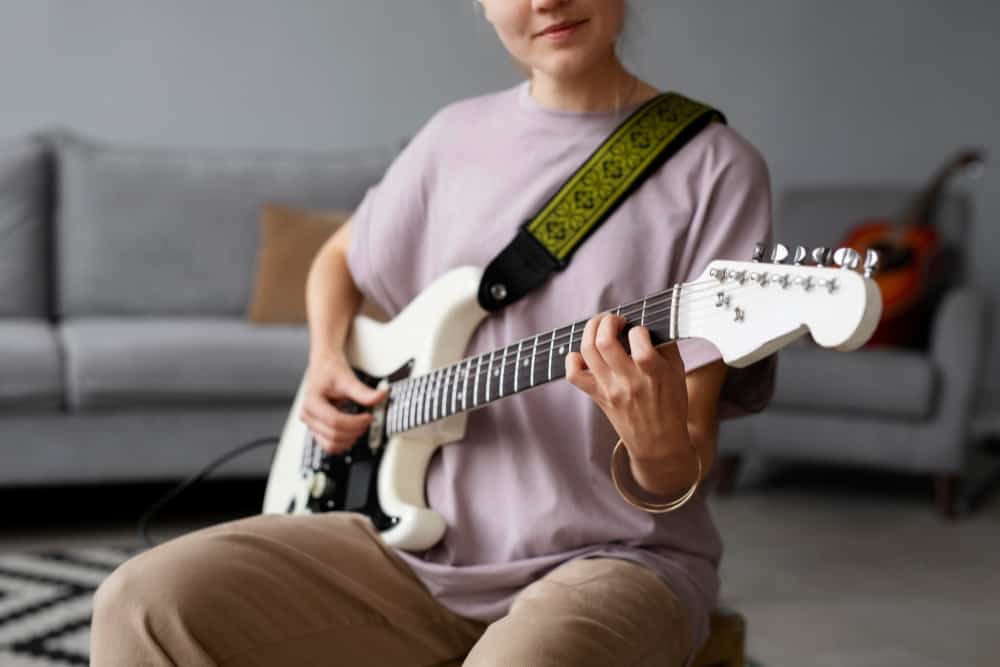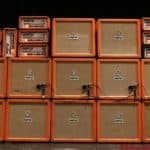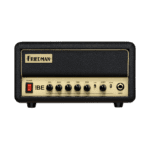Living in an apartment is such an overwhelming situation for guitar players.
You may think that I’m being too exaggerated but many aspects reinforce this idea.
As you are living in a building, you have many people living in your surroundings which means no loud sounds, otherwise, you will get a lot of complaints from your upset neighbors.
As a musician, you are intended to practice regularly but that will be quite hard if you can’t make any noise but let me tell you that we can solve your problem.
An electric guitar is not so loud itself, what defines the loudness of the instrument is how is amplified. Although amps could be a nuisance for people next door, most of them can be suitable to play at low levels without bothering anyone.
Through this article, I will try to explain why a guitar could be too loud for a flat plus I’ll give you some alternatives to play silently.
In the end, you will know everything needed to practice in your apartment without being an undesired neighbor.
Is a plugged-in electric guitar too loud for an apartment?
Needless to say, an electric guitar needs to be plugged in to sound as intended, you won’t have any problem if you play in a house but this may be quite different if living in an apartment.
Whether a plugged-in guitar is too loud for a flat will depend on the amp and the volume you set it.
The key is to play at low levels having the proper setup and settings, if you do so, you will be able to play electric without being a nuisance for your neighbors.
Otherwise, you will bother people in your surroundings and the person living next door would be really upset about your noises.
Is an unplugged electric guitar too loud for an apartment?
Although we say that an electric guitar requires to be plugged into an amp, you can also play it unplugged.
Of course, it won’t be the same but a good alternative to playing at your apartment.
What I mean to say is that as electric guitars don’t usually have a hollow body they don’t produce loud sound at all, which is perfect not only for players living in flats but also for those who practice during the night.
Unplugged electrics are in fact quite silent and won’t bother anyone.
However, if your walls are not thick enough the sound could be heard from the other side.
What is more, if you possess a semi-hollow electric guitar the vibrations in the body will produce a loud acoustic sound, a pretty annoying thing for neighbors, especially if you play hard.
Can you play the electric guitar at low volumes?
When you have an electric instrument what you want to do is to push the volume to its limits just to have that feeling of highness but if you live in an apartment you must get rid of that idea and know that you can get an acceptable tone by playing at low levels.
It always depends on the amp you use plus the settings and it also varies from one kind to another.
Tube amps are known to sound better when pushed to the limit, that’s because when you crank them up you will get that naturally distorted tone that sounds amazing.
However, modern solid-state amps can achieve nice, fine tones at whisper volumes, so you won’t need to sound loud to pull off a sound you like.
You can also use software on your computer or phone to work as an amplifier and listen to your sound through headphones.
The volume of an electric guitar is actually defined by how it’s amplified
If you take your electric guitar you will notice that there are some knobs of tone and volume.
However, although they have a volume knob, the peak of the loudness of what you play is actually defined by your amp.
The volume levels of a guitar always depend on how your equipment is set up, the instrument by itself doesn’t produce any sound, the signal is sent by the pickups to the amp and then, becomes sound.
Volume knobs on guitars only define the strength of that electric signal being sent.
Finally, that signal is translated by the speaker within the amplifier, that’s why the volume is strictly defined by how you amplify your instrument.
Best wattage for an apartment practice amp
Guitar players obviously need to practice themselves and if you live in an apartment the best way to practice at low volumes is a low-wattage amp.
Although wattage is more related to amp’s power than volume, a 5 watts amplifier would be more than enough to hear your instrument properly while practicing.
One of the most popular models is the Marshall DSL5CR, a 5 watts little amp capable of conjuring classic Marshall sound.
However, bear in mind that this kind of gear is just for flat or bedroom practice, if you intend to use it for rehearsals or live shows it won’t be enough power, thus not enough volume.
You can check out this article on what amp output power is best for gigging:
Alternatives for practicing guitar in an apartment without bothering your neighbors
Playing instruments in an apartment could be such a headache because you can bother people around you.
That’s why I will give you some alternatives to practice with your guitar without being an annoying neighbor.
First of all, the most common and known option is to play using headphones.
Some amps have an output channel in which you can plug your headphones, the signal will be translated by the headphones and you won’t lose sound fidelity at all.
What is more, if you don’t have or can’t afford the equipment there are lots of amp simulators so you can use your computer as an amplifier.
In that you, you just have to plug your earphones in the computer jack.
To avoid the vibrations spreading across the whole room, what you can do is place your amp on a chair or a stool.
By doing that, the sound won’t propagate across the floor as easily and your neighbors will be thankful.
In addition, if you only have to practice techniques such as running scales, picking styles, etc. is better to do it unplugged.
As you need to acquire the technique, there’s no point in plugging your guitar in, I suggest every time you practice that don’t use an amp.
Last but not least, if you intend to continue playing in the long term, what you can do is invest in acoustic insulation.
In that way, the sound won’t go out of your room and you won’t receive any complaints from your neighbors.

Hello there, my name is Ramiro and I’ve been playing guitar for almost 20 years. I’m obsessed with everything gear-related and I thought it might be worth sharing it. From guitars, pedals, amps, and synths to studio gear and production tips, I hope you find what I post here useful, and I’ll try my best to keep it entertaining also.





